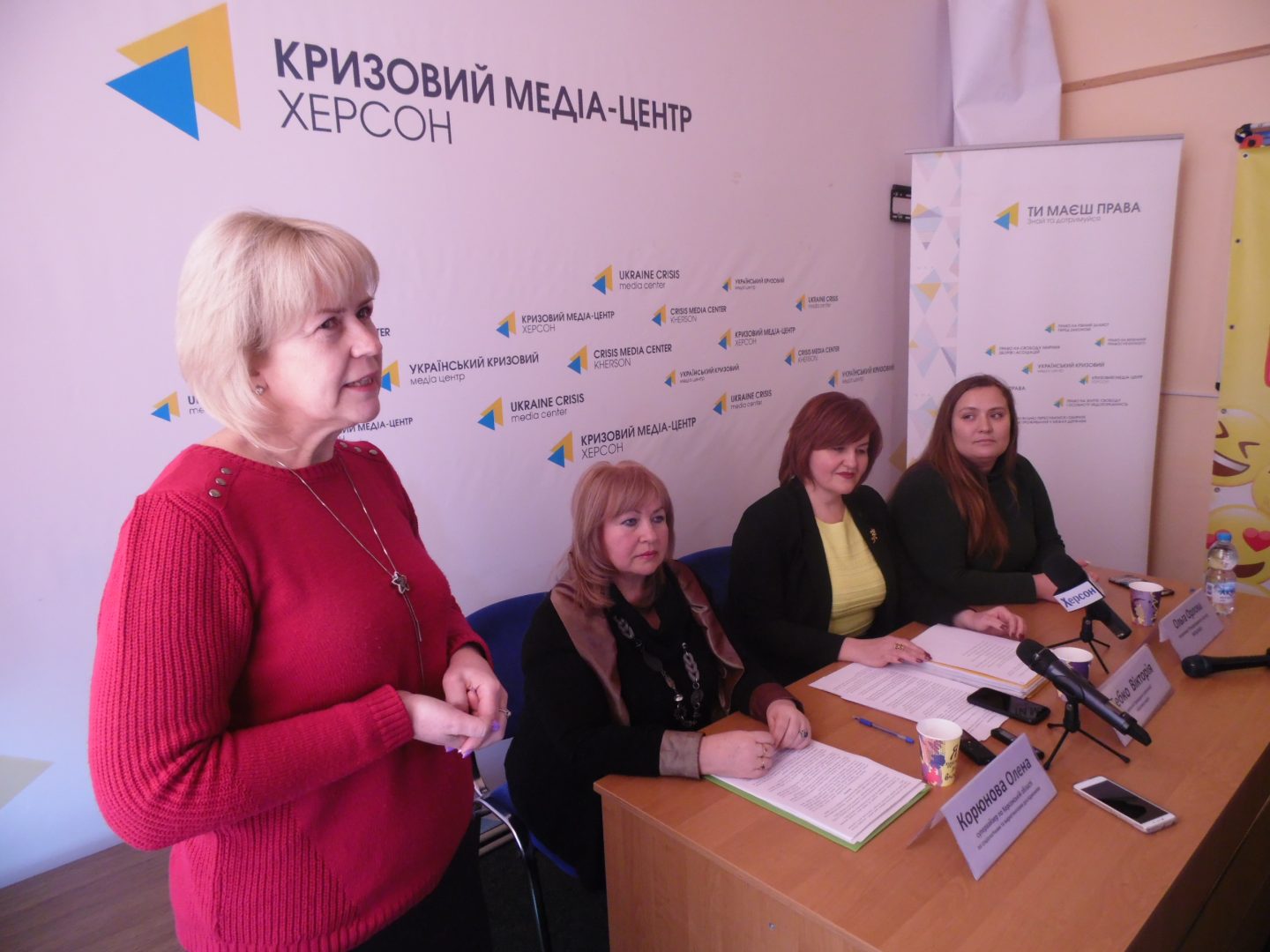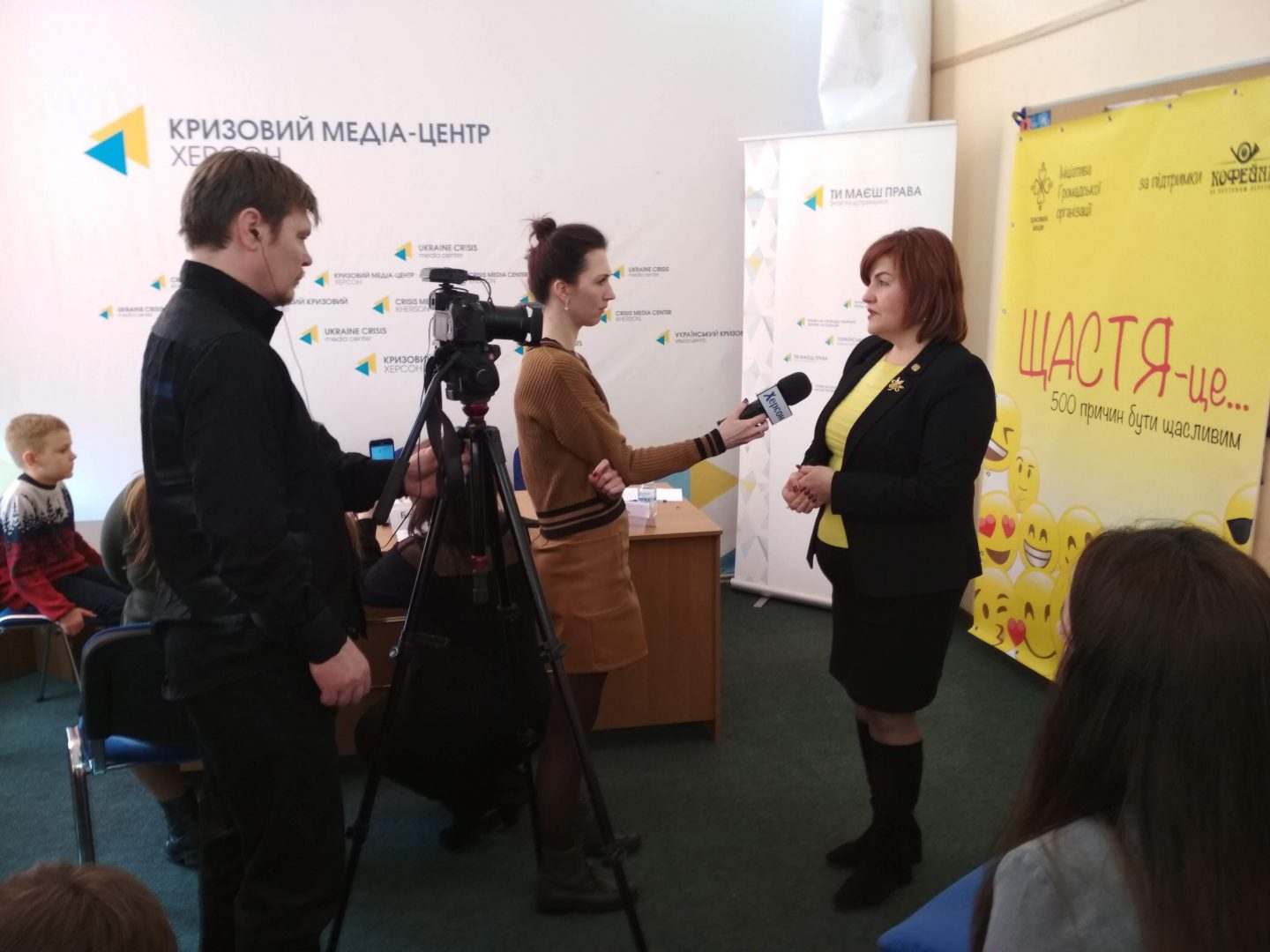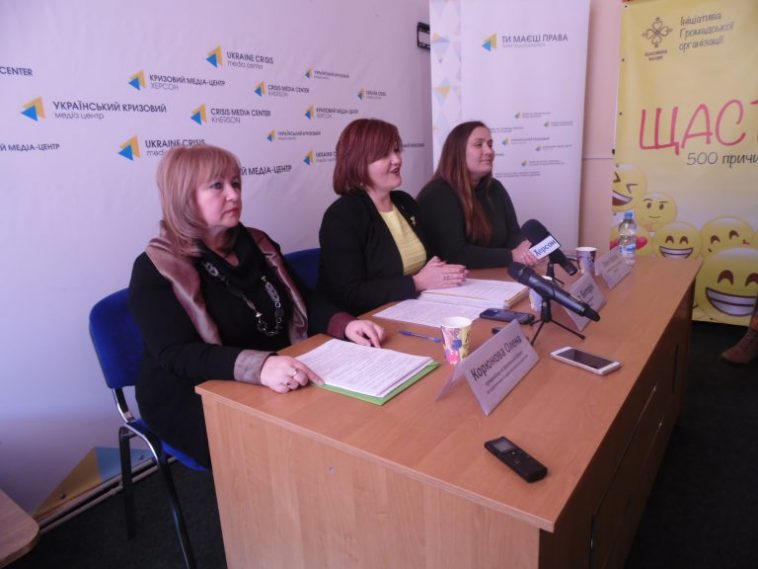On February 14, 2020 the results of a sociological survey “The main components of happiness in understanding of the Kherson citizens” were presented at the Crisis Media Center. Kherson.
At the beginning of 2020, the Service of happiness and improvement of life quality was established in the Kherson regional state administration. The launch of this subdivision has aroused great interest among the residents of the region and the public members. Dozens of articles on the Happiness service and its leaders have appeared in the media.
The emergence of the Happiness service coincided with the emergence of new community initiatives. So, at the beginning of February the independent theaters within the framework of the local festival “February February” hosted the performance “What does the happiness mean?”. The NGO “Happy Nation” organized a sociological poll “The main components of happiness in the understanding of the Kherson citizens”. The survey was conducted by means of a survey among Kherson residents at the age from 16 to 65 years. The survey results were presented by Victoria Bebko, head of the Happy nation public organization (customer of the sociological survey), Olena Koryunova, the Kherson region surveyor for sociological and marketing research, who organized the survey, and Olga Orlova, founder of the BROADWAY production center.

180 respondents were interviewed, where 79 of them were men (43%) and 101 – women (57%). The respondents were selected by gender and age indicators. The survey was conducted according to the standard methodology in the respondents’ dwellings. The selective control of the interviewers’ compliance with work standards was carried out.
Olena Koryunova, Kherson region surveyor for sociological and marketing research, summarized the main results of the study:
- In the opinion of the most interviewed residents, it is enough to have a prosperous family to achieve happiness (27.09%). Also a large percentage highly estimated health (25.70%) and good friends (16.33%). The lowest percentage for achieving happiness, the respondents consider having a property (4.79%) – a house, a car.
- Most respondents (83.89%) believe they have a dream. And only a small percentage of respondents (8.33%) said they had no dreams.
- The largest percentage of respondents (15%) dream of living in their own home or apartment. Many respondents (11%) dream of profitable work, travel (10%). The same percentage dream of buying a car and good health (9% each).
- The vast majority of respondents (87.22%) believe that if they have a dream, they will be happy people. A small percentage of respondents (1.11%) do not consider having a dream as a sign of happiness.
- Most of the interviewed residents (49.75%) believe that to realize the dream it is necessary to accumulate funds. A much smaller number of those polled believe that it is necessary to get quality education (18.75%).
- On the question “Please tell me what stands between you and happiness” the absolute majority, 59,44% answered that nothing prevents. And 19.45% of the responders consider this question to be not serious, or have not thought about it or are unable to answer it.
- Most of the interviewed Kherson residents (55%) consider themselves happy people. And only 10% couldn’t tell if they were feeling happy.
- The vast majority of respondents (40.56%) believe that one can learn to be happy. However, a large number of respondents (33.89%) believe that one cannot learn to be happy.
- Kherson considers family (28.27%) and health (16.55%) as symbols of happiness. Although 3.44% did not think about it.

In addition, during a press conference, Victoria Bebko and Olga Orlova informed about their organization’s upcoming plans. As early as March 20, they plan to hold a Happiness forum and Happiness lessons at the city schools. This day, they plan to gather students for planting “trees of happiness.”
The event’s live broadcast can be found at the link
The event was held within the project “Contemporary regional media as a guarantee of quality in media competent and democratic Ukraine”, implemented by Ukraine Crisis Media Center with the financial support of the Ministry of Foreign Affairs of Norway, represented by the Royal Norwegian Embassy in Kyiv.




